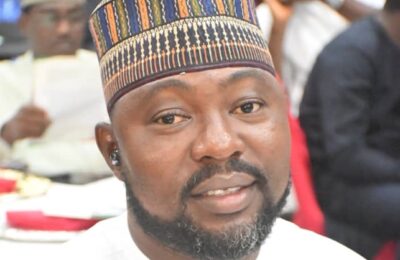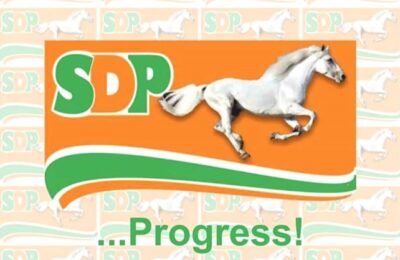Workers in Kogi State have been hit hard by cash crunch and the bailout arranged for insolvent states by the Federal Government to alleviate their plight has not been released to the state. Amidst the pains and suffering, the delay has been attributed to political undertones, GBENRO ADEOYE writes
It was British singer Andrew Eldritch who said, “The citizen is becoming a pawn in a game where nobody knows the rules, where everybody consequently doubts that there are rules at all, and where the vocabulary has been diminished to such an extent that nobody is even sure what the game is all about.”
When the singer made the statement, he probably did not know about Kogi State, whose workers are today, pawns in a political calculation that experts have aptly described as dangerous.
The countdown to the governorship election to hold on November 21 in Kogi State is on and it is just one week to another big day in the state’s political history. Interestingly, the media have been buzzing with excitement over the party or the candidate that is likely to win the people’s mandate.
Therefore, analyses have centred on the incumbent governor, Capt. Idris Wada (retd.) of the Peoples Democratic Party and his main challenger, Prince Abubakar Audu of the All Progressives Party.
But not much is said about the pawns in this equation. The pawns are the civil servants who are awaiting their salaries and arrears.
A comprehensive relief package approved by President Muhammadu Buhari for states to deal with the lingering crisis of unpaid workers’ salaries largely caused by cash crunch, poor internally generated revenue and government wastage is yet to be released to Kogi State workers, the same people who are expected to vote next Saturday, most likely in the harsh sun.
To access the funds, the beneficiary state would need the resolutions of its executive council and the House of Assembly consenting to the loan and the issuance of Irrevocable Standing Payment Orders to ensure timely repayment at source from its Federation Account allocations.
Out of the N80bn applied for by the Kogi State Government, the Central Bank of Nigeria approved the sum of N50.8bn, but the fund has not been released to the state, even as the government said that it had satisfied all conditions for the intervention.
At the time of application, the state owed N45.8bn in salary arrears of local government workers and primary school teachers, N5bn in salary arrears for workers in the state civil service and about N29.2bn in pension arrears. Therefore, the approved funds would only cover the payment of the salary arrears of local government workers, primary school teachers, and workers in the state civil service.
But over one month since many of the 27 states that applied for the funds had received their share, the fate of government workers in Kogi State hangs in the balance.
About a week ago, government workers in the state stayed at home for one day to protest the non-release of bailout to the state.
But in spite of the protest, the state Chairman of the Nigeria Labour Congress, Mr. Edoka Onuh, told our correspondent in a telephone interview, that there had so far been no comment from the CBN on the issue.
Speaking on the plight of the workers in the state, Onuh said, “Currently, the state workers are being owed only one month but the local government workers and the teachers that are owed between eight to 13 months in arrears are dying. Their purchasing power is down and they need survival.
“With all the actions we have taken, the CBN has not even made a comment. We are the only state in the North Central region that has not received bailout. It was on the basis of that protest that we tried to draw the attention of President Buhari and the CBN governor (Godwin Emefiele) to know that the bailout which has been released for other states has not been released to Kogi State and the reasons are not known.
“We have warned the politicians in the state not to play politics with the workers’ welfare. This is the position of the NLC and the Trade Union Congress in the state. The CBN governor should tell us what is delaying the bailout. If it is for political reasons or because election is around the corner, it should let us know. But election was not part of the reasons why the bailout was approved.”
Meanwhile, Wada has continued to blame the APC for the delay, alleging that Audu and his running mate; Mr. James Faleke, boasted at a campaign rally that the bailout would not be released until after the election, and that they had prevailed on Buhari to stop the release of the bailout to the state.
The allegations behind the delay have been varying, but all have been political.
Meanwhile, supporters of both parties have been arguing back and forth, with those of the APC expressing the opinion that the bailout should not be released to the PDP government in the state because it could provide the governor with more financial muscle to challenge the opposition and win the next election.
It was also learnt that the APC considers the delay as necessary to make Wada’s government unpopular ahead of the coming election.
Analysts say that making governance difficult for Wada in Kogi State would be tantamount to wooing the electorate to see the reason to vote for the party at the federal level.
A lawyer, Mr. Liborous Oshoma, however, questioned the perceived advantages of mainstream politics, describing such political calculations as dangerous for the polity.
Oshoma said such calculations could push Nigeria to a one-party state, which he described as not ideal.
He said, “The idea of wanting the governor to be in the same party as the President is always there, but this is how we gradually drift towards a one-party state and then later turn around to complain.
“This was how the South West drifted towards a one-party state by surrendering to the PDP in 2003 because they wanted to play mainstream politics only for them to regret it later.”
In a recent interview with a national newspaper (not the Saturday PUNCH), Wada accused the APC and the CBN of complicity in the matter, saying, “They (CBN) started releasing (funds) to various states and didn’t release to us. So I went to the CBN governor and asked that what is going on, he said they will soon get to us.
“At a critical meeting, he committed that within the following week, they were going to release the money, but up till now, they have not.
“The next thing we know is for the APC governorship candidate in the state to be boasting in his campaign that they will not release the money until he becomes the governor; that he is going to win the next election and that the APC is in charge of the Federal Government, that they have blocked the release of the money to Kogi.
“This is shocking because this country belongs to all of us; whether you are in the APC or the PDP, the interest of the people is why we come to public service. So, if you say you want to be governor of a state, why will you block what will improve the lives of the workers of our state?”
However, the APC in the state has denied the allegations.
A lawyer, Mr. Fred Agbaje, described the action of the Federal Government and the CBN, if true, as “illegal and unconstitutional” while calling on them to immediately release the bailout to the state.
Agbaje, who urged Kogi State Government to sue the Federal Government and the CBN, said, “The Federal Government should release the entire bailout irrespective of whether the governor of the state is leaving office tomorrow or not.
“Since the Federal Government has been magnanimous enough to become Father Christmas to states with governors known to be intellectually lazy and cannot embark on economic drive towards resuscitating and reviving their internally generated revenue, then it should also release funds to Kogi.
“Any Federal Government policy that does not promote unity is in violation of the federal constitution. There is no justification to withhold the bailout.”
Oshoma, in his view, said the action of the APC smacked of desperation, if it was truly behind the delay in the release of bailout to Kogi State.
He said the issue would have far-reaching economic implications for the state, adding that a party that came to power on the mantra of change should not be selective, but deal with issues holistically.
He said, “If a government’s ideology is change, I think it should be holistic and not selective. If it is not just a slogan, then we should change our attitude to issues. Under the PDP, we saw things like this that we labelled as impunity.
“So if it is true that the bailout is being delayed because of political reasons, then it is unfortunate. Government should not just give bailout; it should also be able to monitor the proper utilisation of the funds to make sure they are actually used for what they are meant for.
“With this, it shows that government does not have a mechanism for monitoring enforcement. I expect that the time of politics is over and that this is the era of governance. Every state government should be treated equally irrespective of the political party governing there because it is about the people.”
Efforts by Saturday PUNCH to get an official statement from the CBN were not successful as the assistant spokesperson for the apex bank, Isa Abdul, declined to comment on the issue, directing our correspondent to the office of the Director.
A woman who answered the call promised that an official with the authority to speak on the issue would get back to our correspondent, but no one from the bank did as of the time of filing this report.
However, a source in the bank who spoke on condition of anonymity, only said: “CBN is not interested in political issues; Kogi is not the only PDP state that has not received bailout.”
In finding lasting solutions to such issues, experts have identified fiscal federalism and the strengthening of institutions as integral to reducing the reliance of states on the Federal Government.
For instance, Oshoma noted that the APC, during its campaign, promised to enforce fiscal federalism in the country but has failed to keep to its word since it won the presidential election and assumed power.
He said, “This is pointer to the fact that we need to begin to build institutions. If there is a strong House of Assembly, it would have been able to monitor such funds and ensure strict compliance to laid-down procedures and laws, so there will be no fear that the money could be used for election.
“Also, the APC consistently reminded us of fiscal federalism and how we needed to go back to the drawing board to review the federating units. A situation where we run cap in hand to the Federal Government to look for money is not good enough. But the party has been silent on it since it came to power.”




